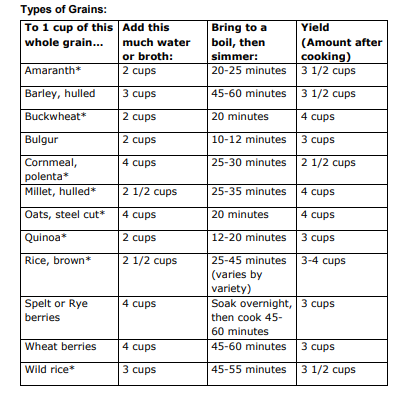Health and wellness are vital aspects of living a fulfilled life, and the Bible offers a wealth of wisdom on how we should care for our bodies, minds, and spirits. Scripture reveals that our bodies are sacred, created by God, and designed to thrive when we honor Him with our lifestyle choices. In this article, we will explore biblical teachings on health, wellness, and how living a life aligned with God’s Word can promote holistic well-being.
1. Our Bodies as Temples of the Holy Spirit
One of the most direct references to caring for our physical health comes from 1 Corinthians 6:19-20, where the Apostle Paul writes:
“Do you not know that your bodies are temples of the Holy Spirit, who is in you, whom you have received from God? You are not your own; you were bought at a price. Therefore honor God with your bodies.”
This passage highlights that our bodies are not merely physical vessels but sacred temples where the Holy Spirit dwells. Because of this, we are called to honor and care for our physical health, treating our bodies with respect and making choices that reflect the value God places on them. This includes:
- Eating nutritious foods.
- Staying active.
- Resting appropriately.
- Avoiding harmful substances or behaviors.
By caring for our physical health, we create a strong foundation for God’s work in and through us, ensuring that we are equipped to serve His kingdom.
2. The Importance of Rest and Sabbath
Rest is essential to both our physical and spiritual well-being. The Bible emphasizes rest through the concept of the Sabbath, which is introduced in Genesis 2:2-3:
“By the seventh day God had finished the work he had been doing; so on the seventh day he rested from all his work. Then God blessed the seventh day and made it holy, because on it he rested from all the work of creating that he had done.”
God, who is all-powerful, chose to rest, and by doing so, He modeled the importance of taking time to rejuvenate. Rest is not a sign of weakness but a critical component of wellness. Observing the Sabbath allows us to pause, reconnect with God, and recharge physically and mentally. This balance between work and rest is vital for maintaining long-term health.
3. Biblical Nutrition: God’s Provision for Our Physical Health
God has provided a wide variety of foods in His creation to nourish and sustain us. In Genesis 1:29, God says:
“Then God said, ‘I give you every seed-bearing plant on the face of the whole earth and every tree that has fruit with seed in it. They will be yours for food.'”
This verse highlights that plants and fruits were given by God for our nourishment. The Bible encourages us to eat what is natural, wholesome, and unprocessed—foods that contribute to health and vitality. Throughout Scripture, we also see references to healthy foods such as:
- Grains: Barley and wheat (Deuteronomy 8:8).
- Fruits and Vegetables: Pomegranates, figs, and olives (Numbers 13:23, 1 Kings 4:25).
- Herbs: Hyssop, coriander, and mint (Exodus 12:22, Matthew 23:23).
By choosing to eat foods that God has created and that honor His design, we promote better physical health, which in turn helps us live a life that glorifies Him.
4. Mental Health and Trust in God
The Bible addresses not only physical health but also mental and emotional well-being. Scripture encourages us to cast our anxieties and burdens on the Lord, as seen in Philippians 4:6-7:
“Do not be anxious about anything, but in every situation, by prayer and petition, with thanksgiving, present your requests to God. And the peace of God, which transcends all understanding, will guard your hearts and your minds in Christ Jesus.”
This passage reassures us that trusting in God and bringing our worries to Him in prayer can alleviate stress, anxiety, and fear. When we surrender our struggles to God, He offers us peace, which is essential for mental and emotional wellness. Additionally, Isaiah 26:3 promises:
“You will keep in perfect peace those whose minds are steadfast, because they trust in you.”
By focusing our minds on God and cultivating trust in Him, we create an environment of peace and emotional stability that fosters wellness.
5. Healing and Wholeness Through Faith
The Bible is filled with accounts of Jesus healing the sick, emphasizing that God cares about our physical health and is capable of healing us. Psalm 103:2-3 speaks to God’s power to heal:
“Praise the Lord, my soul, and forget not all his benefits—who forgives all your sins and heals all your diseases.”
While the Bible teaches that God is our healer, it also encourages us to seek physical healing through wise choices and medical care. James instructs believers to call on the elders of the church to pray over the sick and anoint them with oil for healing (James 5:14).
In addition to seeking healing, God calls us to live with faith, believing in His ability to heal and restore us. Jesus often said to those He healed, “Your faith has made you well” (Luke 8:48). Faith, combined with a lifestyle that honors God, positions us to receive the fullness of health He offers.
6. Holistic Health: Body, Mind, and Spirit
Biblical health is holistic, meaning it involves every part of us—body, mind, and spirit. 3 John 1:2 speaks to this:
“Dear friend, I pray that you may enjoy good health and that all may go well with you, even as your soul is getting along well.”
This verse shows that our spiritual well-being is connected to our physical health. As we grow in our relationship with God, we experience greater health in every area of life. Spiritual practices like prayer, meditation on Scripture, and worship not only nurture our souls but also contribute to overall wellness by reducing stress, increasing joy, and providing inner strength.
Conclusion
The Bible offers profound guidance on how we can live healthy, balanced lives. From honoring our bodies as temples of the Holy Spirit to embracing rest, proper nutrition, mental peace, and faith, God calls us to care for every aspect of our being. In doing so, we reflect His glory and position ourselves to live purposefully and fruitfully in His kingdom.
As you pursue health and wellness, remember that it is not merely about physical fitness or diet but about living in alignment with God’s design for your life. When we steward our health according to His principles, we experience the fullness of life that He desires for us.












